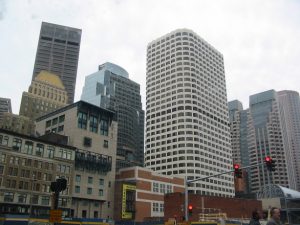If you follow this blog at all, you’ve likely heard us reference the term, “Complete Streets.” It’s a concept that involves taking into account the equality of all road users – not just those who drive a motor vehicle. 
Most streets in the country in existence today were constructed with a single road user in mind: Motorists. People moving on foot or by bike – and even public transportation – were largely left out of the equation. What this means is we have so many cities – and even still locations within our own progressive city, Boston – that simply aren’t safe for bicyclists and pedestrians. The Boston Complete Streets initiative aims to improve that a little bit at a time by retrofitting older streets with certain bike-friendly features, like bike lanes and sharrows, as well as reducing speed limits, narrowing roads and creating more sidewalks, crosswalks and comfortable bus stops.
But meanwhile, the Manual on Uniform Traffic Control Devices (MUTCD) – sometimes referred to as “the Bible” of American street engineering, still don’t recommend these kinds of designs that promote bicycle safety. What this means is traffic engineers across the country are slow to follow designs we know have been proven to reduce bicycle crashes resulting in injuries and deaths. For example, protected bike lanes are known to lower the risk of a bicycle-versus-car accident because creating a barrier between bicycles and cars means there is less of a chance the two will collide. Yet even this very basic point is not included in the MUTCD. Continue reading
 Bike Accident Lawyers Blog
Bike Accident Lawyers Blog


